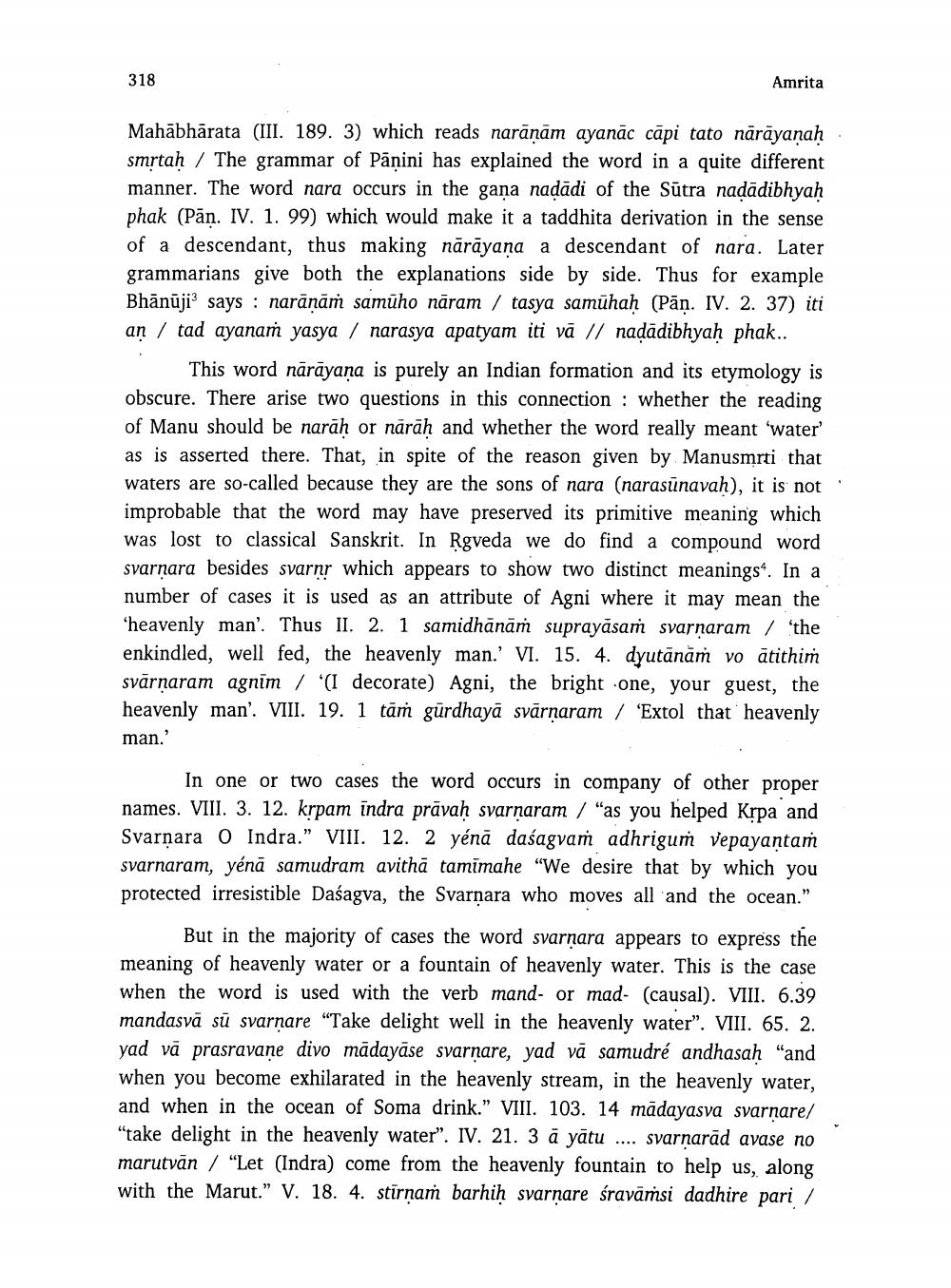________________
318
Amrita
Mahabharata (III. 189. 3) which reads naränäm ayanāc cäpi tato nārāyaṇaḥ smṛtah/ The grammar of Panini has explained the word in a quite different manner. The word nara occurs in the gana nadadi of the Sütra naḍādibhyaḥ phak (Pan. IV. 1. 99) which would make it a taddhita derivation in the sense of a descendant, thus making närayana a descendant of nara. Later grammarians give both the explanations side by side. Thus for example Bhānūji' says naräṇāṁ samûho nāram / tasya samühaḥ (Pän. IV. 2. 37) iti an/ tad ayanam yasya narasya apatyam iti va // naḍādibhyaḥ phak..
This word nārāyaṇa is purely an Indian formation and its etymology is obscure. There arise two questions in this connection whether the reading of Manu should be naraḥ or näräḥ and whether the word really meant 'water' as is asserted there. That, in spite of the reason given by Manusmrti that waters are so-called because they are the sons of nara (narasûnavah), it is not improbable that the word may have preserved its primitive meaning which was lost to classical Sanskrit. In Rgveda we do find a compound word svarṇara besides svarnṛ which appears to show two distinct meanings. In a number of cases it is used as an attribute of Agni where it may mean the 'heavenly man'. Thus II. 2. 1 samidhānām suprayasam svarnaram the enkindled, well fed, the heavenly man.' VI. 15. 4. dyutānam vo atithim svärnaram agnim (I decorate) Agni, the bright one, your guest, the heavenly man'. VIII. 19. 1 täm gürdhayā svārṇaram/ Extol that heavenly man.'
In one or two cases the word occurs in company of other proper names. VIII. 3. 12. krpam indra pravah svarnaram / "as you helped Krpa and Svarnara O Indra." VIII. 12. 2 yéna daśagvam adhrigum vepayantam svarnaram, yénā samudram avithā tamimahe "We desire that by which you protected irresistible Daśagva, the Svarnara who moves all and the ocean."
But in the majority of cases the word svarṇara appears to express the meaning of heavenly water or a fountain of heavenly water. This is the case when the word is used with the verb mand- or mad- (causal). VIII. 6.39 mandasvä su svarnare "Take delight well in the heavenly water". VIII. 65. 2. yad vā prasravane divo mādayāse svarnare, yad va samudré andhasah "and when you become exhilarated in the heavenly stream, in the heavenly water, and when in the ocean of Soma drink." VIII. 103. 14 mädayasva svarṇare/ "take delight in the heavenly water". IV. 21. 3 a yātu .... svarṇarād avase no marutvān / "Let (Indra) come from the heavenly fountain to help us, along with the Marut." V. 18. 4. stirnam barhiḥ svarṇare śravämsi dadhire pari /




